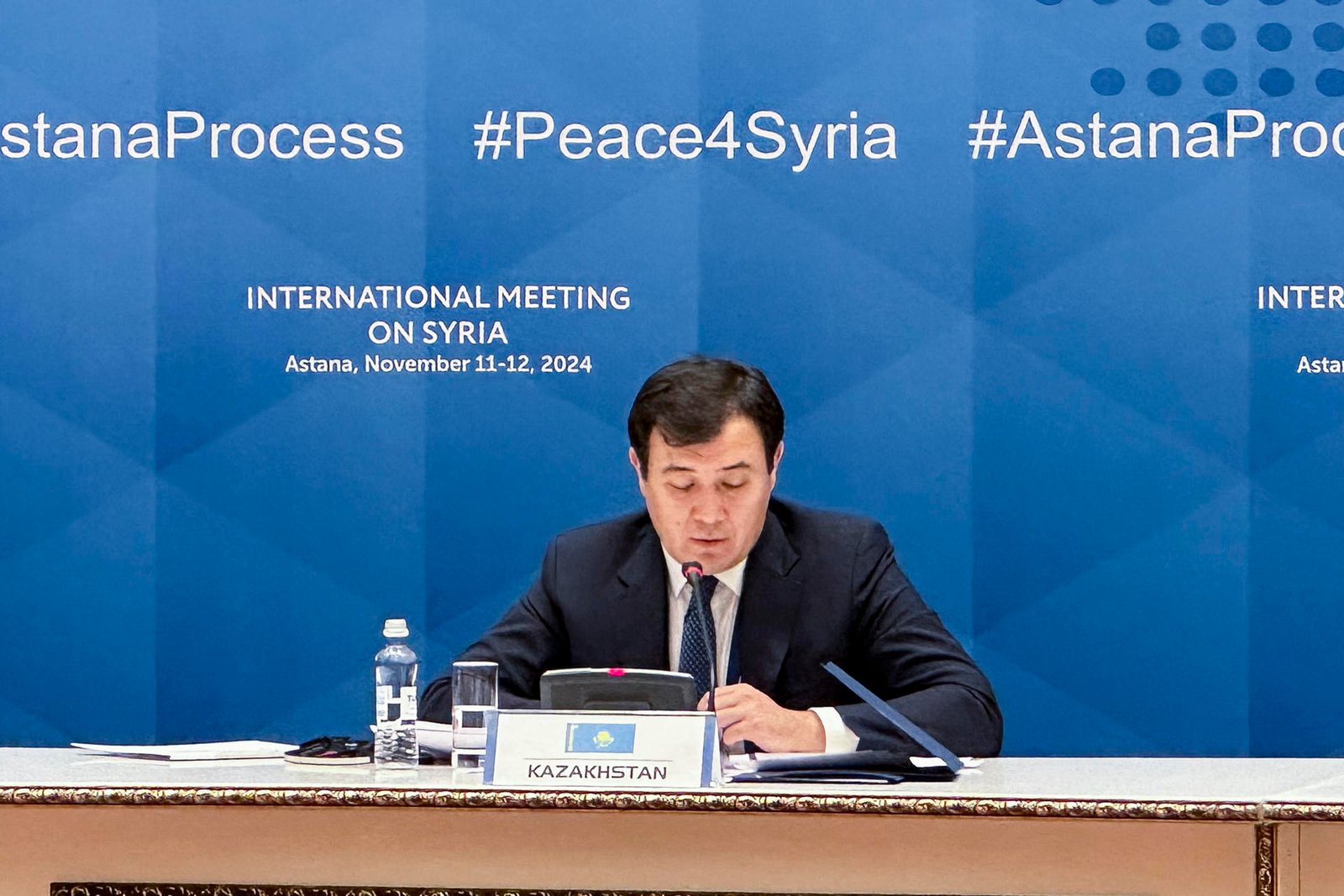Astana, Nov 12 (EFE).- The three guarantor countries of the ceasefire in Syria—Russia, Iran, and Turkey—condemned Tuesday in the Kazakh capital the Israeli attacks in Gaza and the expansion of the conflict throughout the region.
Condemnation of Israeli Actions in Gaza and Beyond
The 22nd round of international consultations on Syrian ceasefire compliance, which began Monday behind closed doors in Astana, expressed “strong condemnation and deep concern over the continued mass killing and criminal attacks by Israel in Gaza as well as Israeli aggression in Lebanon and the West Bank,” according to a final statement.
The three countries called on “the international community, in particular the UN Security Council, to secure an immediate and permanent ceasefire and ensure unhindered humanitarian access in Gaza.”
Concerns over Regional Escalation and Humanitarian Impact
The ceasefire guarantors also voiced “grave concern over the expansion of the conflict in the wider region by Israel” and condemned strikes on the consular section of the Iranian Embassy in Damascus on April 1, 2024, as well as other Iranian territory.
They stressed the negative impact of this escalation in the Middle East on the situation in Syria and urged UNHCR, UN agencies, and humanitarian organizations to aid “those who were forced to cross from Lebanon into Syrian territory following the escalation of hostilities.”
Russia on Turkey’s Military Actions
Russia’s special envoy for Syria, Alexander Lavrentiev, emphasized that Moscow would not accept new military operations by Turkey in Syria. “The position of the Russian Federation on the possibility of new operations by Turkey is that we will not accept them, as we have already stated,” he told a press conference.
Lavrentiev insisted that Turkey’s military operations would not fix the situation but make it worse, warning that Turkey’s actions would have “a destabilizing effect in the context of the unresolved crisis on the Lebanon-Israel border and in the Gaza Strip.”
Russia also stressed the need for the international community to allocate additional resources to assist refugees. “The presence in Syria of such a large number of people who have arrived in the hope of peace requires very large financial costs,” he noted.
Syrian Opposition’s Concerns over Regional Tensions
Meanwhile, the Syrian opposition at the Astana consultations expressed concern over the escalation of tensions in the Middle East and its impact on their country.
“There is no doubt that the new development of events in the Middle East, the war between Israel and Iran on the territory of Lebanon and Syria, requires us to discuss these new challenges and how they can ultimately affect Syria,” said Ahmed Toma, a representative of the Syrian opposition.
Toma emphasized that Syria, after suffering significant instability over the past decade, could not afford to have its security and that of its neighbors in question again.
He also expressed concern about the change in the U.S. administration and its impact on Syria, asking, “How will (Donald) Trump’s victory affect Syria?”
Toma, Russia: Differing Views on Iran’s Presence in Syria
Toma advocated for the withdrawal of the Iranian presence in Syria. However, the envoy from Russia affirmed that the Iranians, like the Russians, arrived in Syria at the request of the government, making their presence “completely legitimate and justified.”
“I don’t think one can speak of a destabilizing effect of the Iranian presence,” Lavrentiev insisted, adding that Tehran’s involvement is “temporary” and related to anti-terrorism efforts in the region.
The next meeting of the group is scheduled to take place in the first half of 2025. EFE
